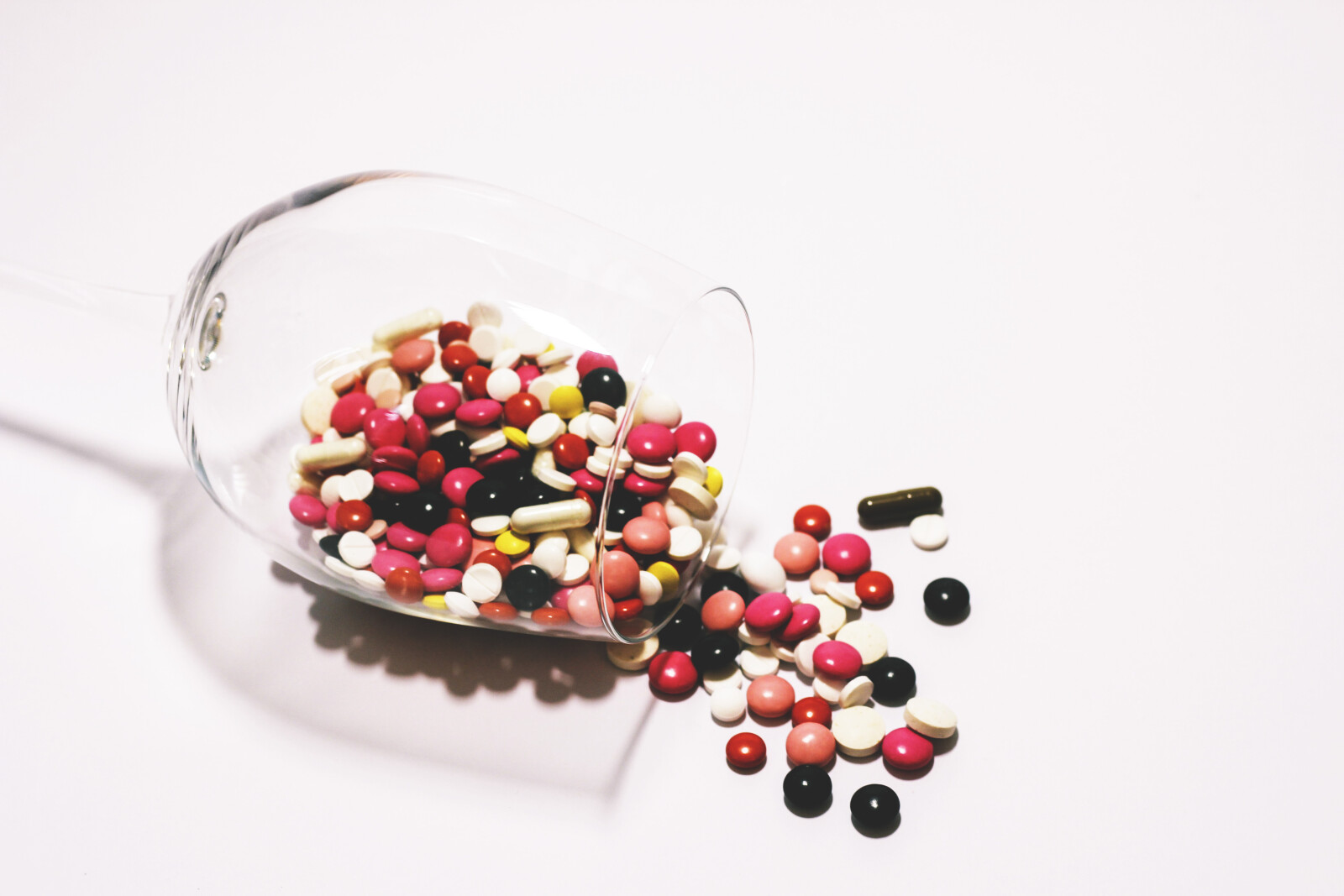Are You Eligible To Join A Drug Liability Class Action?
This article explores the eligibility criteria to join a drug liability class action.

As awareness of harmful substances and their potential adverse effects continues to increase, the need for understanding drug liability laws becomes crucial.
The discussion commences with a brief overview of lawsuits, followed by a focused examination of harmful substances and their associated adverse effects.
The role of manufacturers in such situations is also scrutinized.
Essential evidence gathering methods are outlined, emphasizing the pivotal role of attorneys in maneuvering these legal proceedings.
The article presents an in-depth analysis of the process of forming a group lawsuit, followed by a comprehensive guide to navigate the legal proceedings.
Lastly, the potential outcomes and compensation possibilities are discussed.
The aim is to provide a clear, detailed understanding of the prerequisites to join a drug liability class action.
Key Takeaways
- Understanding the nature of drug liability lawsuits and court procedures is essential for potential plaintiffs.
- Eligibility for a drug liability class action requires suffering harm or injury due to the drug, with circumstances similar to a large number of people harmed by the same drug.
- Recognizing adverse effects related to the drug and experiencing them is important for eligibility.
- Determining the manufacturer's fault by scrutinizing their knowledge, actions, and adherence to regulatory oversight is crucial in a drug liability case.
Understanding the Basics of Lawsuits
Exploring the fundamentals of lawsuits provides a solid foundation for understanding the complexities involved in joining a drug liability class action. Lawsuits are typically categorized into civil and criminal cases, with the former concerning disputes between individuals or organizations, while the latter involves offenses against the state or society at large. Drug liability cases typically fall under civil lawsuits, specifically under the domain of tort law that encompasses personal injury claims.
Understanding the nature of the lawsuit is crucial, but it is equally important to be acquainted with the court procedures. The process usually starts with the filing of a complaint by the plaintiff, alleging harm due to the defendant's actions, such as manufacturing or selling faulty drugs. The defendant is then served with the lawsuit and given an opportunity to respond. This is followed by the discovery phase, where both parties gather evidence in support of their claims and defenses.
Eligibility to join a drug liability class action lawsuit hinges on various factors. The plaintiff must have suffered harm or injury due to the drug in question. Additionally, the plaintiff's circumstances must be similar to a large number of people who have also been harmed by the same drug, forming a ‘class' of plaintiffs. This is often the case with harmful drugs that have been widely distributed.
Understanding these fundamental aspects of lawsuits and court procedures arms potential plaintiffs with the knowledge needed to navigate the complex landscape of drug liability class action lawsuits. Knowledge of these aspects also aids in making an informed decision about participating in such a lawsuit.
Identifying the Harmful Substance
Identifying the harmful substance serves as a crucial initial step in seeking legal redress for potential victims of hazardous pharmaceuticals. Such identification involves the thorough investigation of the substance in question, its regulation, and the potential harmful effects it may have caused.
The Substance regulation, as determined by various regulatory bodies like the Food and Drug Administration (FDA) in the United States, provides an essential framework for understanding if the medication or drug has been mislabeled, misrepresented, or contains harmful ingredients. Developing a clear understanding of the substance and its regulation helps establish the foundation for a potential drug liability class action.
Moreover, establishing an Exposure timeline is equally important. This timeline should effectively demonstrate the period during which the victim was exposed to the harmful pharmaceutical substance. It should also correlate the onset and progression of any health issues with the duration of exposure. This timeline could provide compelling evidence of the direct link between the harmful substance and the injury or illness suffered by the potential class action participant.
To join a drug liability class action, it is necessary to show that the harmful substance caused direct harm. This involves the demonstration of a clear and convincing causal link between the substance and the injury or health issue. Therefore, the identification of the harmful substance and its impact on the health of the victim is a vital determinant of eligibility for a drug liability class action.
It is through this process that victims can seek equitable compensation for their injuries, while simultaneously holding pharmaceutical companies accountable for their negligent or reckless actions.
Recognizing Adverse Effects
Recognizing adverse effects is a critical component in evaluating the potential damage caused by harmful pharmaceutical substances. Drug allergies, for instance, are a common form of adverse drug reactions that tend to manifest physically, impacting an individual's health adversely. They can range from mild skin irritations to severe anaphylactic reactions. Thus, it becomes imperative to record and report any unusual symptoms experienced after the consumption of a specific pharmaceutical product.
Understanding the pharmacogenomics importance is equally crucial. Pharmacogenomics refers to the study of how an individual's genes affect their response to drugs. This relatively new field combines pharmacology (the science of drugs) and genomics (the study of genes and their functions) to develop effective, safe medications and doses that will be tailored to a person's genetic makeup. If a drug has been marketed without considering the varied genetic responses among the population, it may lead to adverse effects in certain individuals.
To be eligible for a drug liability class action, one must have experienced adverse effects directly related to the drug in question. This includes suffering from drug allergies or adverse reactions linked to pharmacogenomics. In addition, it must be proven that the pharmaceutical company was aware or should have been aware of the potential risks and failed to adequately warn consumers.
Evidence of these adverse effects, such as medical records or testimony from healthcare providers, may be required. Moreover, the adverse effects must have resulted in significant harm or injury. These criteria are essential in determining eligibility and are indicative of the seriousness with which drug liability class actions are treated.
Determining the Manufacturer’s Fault
Establishing the culpability of the manufacturer in cases of adverse pharmaceutical effects is a complex undertaking, involving a careful scrutiny of their knowledge, actions, and failure to act. This process entails an examination of the manufacturer's conduct in the context of drug liability laws, which hold companies accountable for the safety and efficacy of their products.
Crucial aspects of this scrutiny include the manufacturer's adherence to regulatory oversight, their responsiveness to product recalls, and their transparency regarding potential risks associated with the drug.
Regulatory oversight serves as a critical benchmark in assessing the manufacturer's fault. This involves evaluating whether the manufacturer has complied with the standards and regulations set forth by entities such as the Food and Drug Administration (FDA). Violation of these regulations or negligence in adhering to them may establish grounds for fault.
Product recalls serve as another crucial factor in determining the manufacturer's liability. A recall could indicate that the manufacturer was aware of the drug's defects or harmful effects but failed to take timely action to rectify the situation. This failure could potentially make them liable for the adverse effects experienced by consumers.
Moreover, a manufacturer's responsibility extends to providing accurate, comprehensive information about the drug's potential side effects. If a manufacturer fails to disclose or downplays these risks, they may be found culpable for any harm caused.
In assessing eligibility to join a drug liability class action, it is imperative to establish the manufacturer's fault. This involves a meticulous examination of their compliance with regulatory oversight, their response to product recalls, and their transparency concerning potential drug risks. Such an assessment will determine the validity of a claim and the potential for successful legal action.
Gathering Essential Evidence
Procuring substantial evidence is a pivotal step in substantiating claims of pharmaceutical manufacturer's fault and involves an in-depth analysis of the drug's development, production, and distribution stages. An intricate process, evidence collection is paramount to the lawsuit timeline, as it determines the feasibility of the case and its potential outcome.
Critical evidence may include internal records, test results, and expert testimonies. Through the examination of internal records, insight into the manufacturer's knowledge of the drug's potential side effects can be gleaned. Any evidence of negligence or concealed information can significantly strengthen the case against the manufacturer.
Test results, both pre-market and post-market, can also serve as compelling evidence. Abnormal results that were ignored or not adequately addressed can constitute a breach of duty on the part of the manufacturer.
Furthermore, expert testimonies can provide a nuanced understanding of the drug's potential harm and the extent of the manufacturer's liability. Experts in the field can elucidate the science behind the drug's side effects, underline the severity of the harm caused, and establish a clear causal link between the drug and the injury.
The lawsuit timeline heavily depends on the process of evidence collection. It is a time-consuming process, requiring careful scrutiny of collected evidence to build a firm case. The more compelling the evidence, the higher the likelihood of a successful class action lawsuit.
Therefore, the gathering of essential evidence is a cornerstone in determining eligibility for joining a drug liability class action. It not only substantiates the claim but also outlines the scope of the manufacturer's liability, defining the course of the lawsuit.
Legal Consultation: Is It Necessary?
Delving into the necessity of legal consultation, it is crucial to understand that the complexities of pharmaceutical lawsuits often require expert legal guidance. The intricate nature of drug liability laws, compounded by the fact that these cases often involve large pharmaceutical companies with comprehensive legal teams, necessitates the need for strong legal representation.
Consultation benefits are multifaceted. First, an expert legal representative can help identify if one is eligible to join a drug liability class action. This entails an in-depth examination of the case, including the drug's effects, the extent of the harm suffered, and any potential negligence or misconduct by the pharmaceutical company. Additionally, the process of gathering and presenting the necessary evidence can be daunting. Expert legal counsel can help ensure all the requisite documentation is assembled meticulously, increasing the chances of a successful claim.
Secondly, legal representation can offer a strategic advantage. Experienced attorneys have an understanding of the legal strategies employed by pharmaceutical companies and can counter these effectively. They can also guide the plaintiff through the complicated legal processes, ensuring that all necessary steps are taken and deadlines are met.
Legal consultation also provides a platform for understanding the potential outcomes and implications of the case. It provides an opportunity to discuss the possible compensation amounts, the probability of success, and the expected duration of the case. This information can be instrumental in making informed decisions about proceeding with the lawsuit.
Thus, the need for legal consultation in drug liability class actions is undeniable. It equips individuals with the necessary resources and guidance to navigate the challenging terrain of pharmaceutical lawsuits, increasing their chances of a favourable outcome.
The Role of an Attorney in a Lawsuit
Having considered the necessity of legal consultation in joining a drug liability class action, it is equally imperative to understand the role of an attorney in a lawsuit. The attorney is more than just a legal representative; they are an essential guide through the labyrinth of legal processes and an advocate in the court of law.
The selection of an attorney is a critical step in any lawsuit process. The attorney's knowledge and experience in drug liability laws can significantly influence the outcome of the case. An attorney who is well-versed in these laws can properly establish the connection between the claimant's injuries and the drug in question. They can also effectively navigate the complex legal procedures, ensuring that all necessary documents are appropriately filed and deadlines are met. Therefore, the attorney selection is not just about choosing a legal representative, but finding the right advocate who can vigorously fight for the claimant's interests.
In terms of lawsuit strategy, the attorney plays a pivotal role in formulating a plan of action tailored to the specifics of the case. They analyse the situation, examine the evidence, and determine the best approach to present the case in the most compelling manner. The attorney's strategic planning can potentially sway the court's decision in the claimant's favour.
To ascertain eligibility to join a drug liability class action, it is necessary to consult with an attorney. They can provide a thorough evaluation of the individual's case, considering all relevant factors, to determine if joining a class action is the most viable approach. The attorney's role in a lawsuit, therefore, is not just contributory, but indeed, indispensable.
The Process of Forming a Group Lawsuit
In the realm of litigation, the formation of a group lawsuit, also known as a class action, entails a meticulous and complex process. This procedure begins with the identification of a common issue affecting a group of individuals. In the case of drug liability, this could be a harmful side effect experienced by a multitude of patients who used a specific medication. The group dynamics involved in this step is crucial, as the claims must be similar enough to warrant a collective action, yet distinct enough to represent a broad range of affected parties.
Once a group is identified, a representative plaintiff is chosen. This individual's experience must typify the experiences of the group and must be willing to participate actively in the lawsuit. The complex legal jargon involved in this process require the assistance of an experienced attorney who can navigate the intricacies of drug liability laws.
The next phase involves the court certifying the class action. The court must discern that a class action is the most efficient and fair way to resolve the claims. Criteria for this determination include the size of the class, the similarity of the claims, and the representative plaintiff's ability to adequately represent the class.
The process culminates with a notice to potential class members. This notice informs them of the lawsuit and their rights, including their right to opt out of the class action. This intricate process ensures that group lawsuits are formed in a manner that promotes fairness and efficiency, while also adequately representing the interests of affected individuals.
Navigating the Legal Proceedings
Navigating through the intricacies of legal proceedings requires a comprehensive understanding of the law, a task often best entrusted to skilled professionals. This is particularly true in the case of drug liability class action lawsuits, which involve complex legal terminology and strict procedural rules. Understanding these complexities is paramount as they determine eligibility for joining such a lawsuit.
Eligibility is often reliant on meeting specific criteria. This may involve proving that the claimant used the drug in question, suffered harm as a result, and that the harm was directly caused by the drug. Moreover, the claimant should be able to demonstrate that the drug manufacturer failed in its duty of care by not providing adequate warnings about potential risks or side effects. A proficient understanding of legal terminology can be instrumental in presenting a compelling case.
Courtroom etiquette is another crucial aspect of legal proceedings. This includes respecting the decorum of the court, following the prescribed dress code, and adhering to the rules of communication. Maintaining appropriate courtroom etiquette can potentially influence the judge's perception of the claimant's respect for the legal process, thereby impacting the outcome of the case.
The complexities of drug liability class action lawsuits underscore the importance of engaging a legal professional. A lawyer with expertise in drug liability laws can effectively navigate these proceedings, ensuring the claimant's rights are upheld, and their case is presented in the most compelling manner. This underscores the critical role of legal professionals in determining eligibility for joining a drug liability class action.
Possible Outcomes and Compensation
Successful litigation in such cases often culminates in substantial financial restitution, a powerful symbol of justice for those wronged by the harmful effects of pharmaceutical negligence. The magnitude of such compensation varies depending on the severity of injury, the degree of negligence, and the impact on the victim's quality of life. This financial restitution is intended to cover medical bills, lost wages, and other related expenses, and may also include compensation for pain and suffering.
The process of compensation negotiation plays a crucial role in determining the amount of restitution. Skilled legal representation can significantly influence this process, as they possess the knowledge and experience to make compelling arguments about the extent of harm caused by the drug in question and the liability of the pharmaceutical company.
Outcome prediction in drug liability class actions can be complex due to numerous factors at play. The strength of the evidence, the number of plaintiffs, the reputation of the pharmaceutical company, and the potential for public outcry are all significant considerations. Furthermore, the pharmaceutical industry's propensity to settle cases out of court can also impact the final result.
A successful result in a drug liability class action provides not only monetary compensation but also a sense of justice and closure for those who have suffered. The acknowledgement of pharmaceutical negligence can serve as a potent deterrent against future misconduct in the industry, promoting safety and transparency. It is, therefore, of utmost importance to understand eligibility and the potential outcomes when considering participation in a drug liability class action.
Frequently Asked Questions
What is the typical timeline for a drug liability class action lawsuit?
The typical timeline for a drug liability class action lawsuit can vary significantly. Lawsuit preparation, including evidence collection and documentation, may take several months to a year.
Following this, the case enters the litigation stage which can extend for multiple years, depending on the complexity of the case.
Settlement negotiations may occur concurrently or after litigation, potentially adding more time. However, there is no fixed timeline as each case's circumstances can cause substantial variation in duration.
Can I join a class action if I live outside the country where the lawsuit is taking place?
International litigation complexities and cross-border legal issues often arise in class action lawsuits. Eligibility for participation in such disputes is typically determined by the jurisdiction of the court handling the lawsuit. However, residing outside the country where the lawsuit is taking place does not necessarily preclude participation.
It is vital to consult a legal expert versed in drug liability laws to navigate the intricacies and determine eligibility. Detailed understanding of these factors is critical to make an informed decision.
Are all members of the class action suit required to testify in court?
In a class action lawsuit, not all members are required to testify in court. The number of testimonies depends on the specifics of the case and is often limited to a few representative plaintiffs.
While Testimony Preparation is crucial for those testifying, it does not apply to all members. Therefore, the role of Witness Credibility is primarily significant for those testifying.
However, all members should be aware of their potential role and the importance of credibility in court proceedings.
How does a class action lawsuit affect my individual rights and ability to file a personal lawsuit?
Participation in a class action lawsuit may limit individual rights to pursue separate litigation. Advantages of individual lawsuits include potential for higher compensation and direct control over proceedings.
Conversely, class action drawbacks may include diluted compensation due to division among large groups and relinquishment of direct control. Therefore, understanding the impact on these rights is crucial when considering inclusion in a drug liability class action.
The decision should be informed by eligibility criteria and potential implications on personal rights.
What happens if the defendant company files for bankruptcy during the class action lawsuit?
Bankruptcy implications during a class action lawsuit can be complex. If the defendant company files for bankruptcy, the lawsuit may be stayed or dismissed. This is because a bankruptcy filing triggers an automatic stay, halting most legal actions against the debtor.
However, the court may permit the lawsuit to proceed if assets are available for distribution. Thus, potential recovery in a class action suit may be impacted, as the bankruptcy proceeding may affect the distribution of the company's assets.
Conclusion
In conclusion, eligibility for a drug liability class action hinges on several key factors:
- Identification of the harmful substance
- Recognition of adverse effects
- Determination of the manufacturer's fault
- Accumulation of compelling evidence
Legal counsel plays a crucial role in this process, guiding individuals through the complexities of forming a group lawsuit, navigating legal proceedings, and achieving possible compensation.
Understanding these elements is fundamental for those considering participation in such a lawsuit.

This post has been generated by AI and was not reviewed by editors. This is Not legal advice. Please consult with an attorney.




